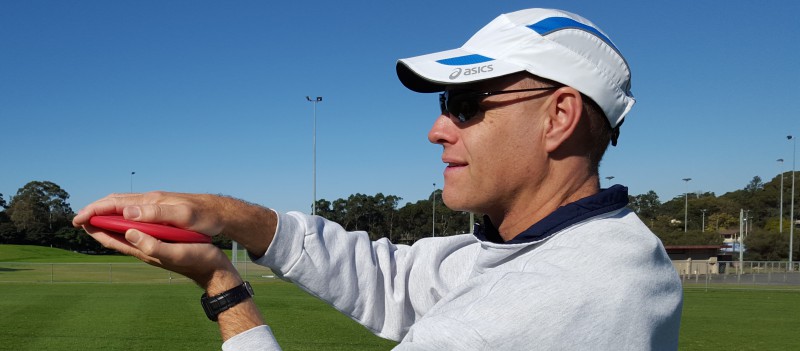Climbing a Mountain Wearing a Pac-a-Mac
A coach’s role is not just to develop ability. It also involves creating an environment that will help kids develop the tools to navigate the journey.
Welcome to my Day 10 review and summary of the GO! Chase Excellence in Youth Sports Virtual Think Tank.
My review focuses on one presentation that I have viewed in the last 24 hours.
Each of my reviews follows the format of the Think Tank ‘Workbook & Reflection Journal’ provided alongside each of the sessions:
- What – What issues does this session address?
- So What? – Why are these issues important?
- Now What? – How can I address these issues or implement the ideas in this session?
Today’s Review
Today’s review is from the “Cultivate” track of the Think Tank. The “Cultivate – Coach the Coach” track is focused on helping coaches create the best possible culture on their team, in their club and among their colleagues.
The presentation I chose today was “Climbing a Mountain Wearing a Pac-a-Mac” by Stuart Armstrong.
What?
Understanding true talent
“Talent” is not fixed. It is a dynamic thing that is changing all of the time.
For example, we may compare children and see that one is more “talented” than another, when the reality is that those children are at different stages of development. Deeming one as talented and one as not is a faulty assessment.
Their “talent” is also linked to the environment that they are in. Some children will show ability in certain situations and not in others.
As their growth and the environment is changing, so may the “talent” that is evident.
Therefore with kids, we need to be cautious when labelling kids as “talented”.
We need to be cautious when labelling kids as “talented”.
What we see as an individual’s performance is only the tip of the iceberg. A lot is going on below the “waterline’ with internal drivers such as a love of the activity, concentration, self-belief, work ethic, etc. Rather than just looking at what people can do, we need be aware that “talent” is affected by development, opportunity and internal drivers.
Talent = Ability combined with mindset and the environment, with all of this happening over time.
The tools for the journey
How we approach the environment and what language we use has a radical impact on how young people perceive, face and overcome challenge.
Practical tips:
- We need to help young people overcome an “I can’t do it” attitude and develop an “I can’t do it yet” attitude.
- Allow kids to face struggles with appropriate support and guidance. Don’t remove all obstacles for them.
- Consider how you can craft an environment that creates enough struggles that facilitate personal growth
- Reflect on what messages do you send about the value of struggle e.g. De-emphasise outcome. Reward struggle, willingness to commit, strive, try, etc.
- Create a safe environment that lets kids fail without feeling that they have failed.
- Provide opportunities for kids to learn about the concept of consequence, outcomes, commitment and dedication.
So What?
It has been said that letting an athlete think that they have “made it” is one of the best ways to ensure that they won’t. This problem is often caused in children by the demeanour of significant adults around the athlete.
If coaches and parents understand and treat “talent” as a dynamic thing that is influenced by an athlete’s mindset and the environment, a more reserved and circumspect reaction to a child’s performance is more likely.
Such knowledge will critically influence our coaching approach, hopefully leading to a more holistic attitude to a young athlete’s development.
A coach’s role is not just to develop ability. It also involves creating an environment that will help kids develop the tools to navigate the journey.
Now What?
As a coach, in response to this presentation, I will without doubt be more purposeful in creating opportunities for the kids I coach to develop the “tools for the journey.”
I have always been cautious of categorising kids as “talented” fully knowing that this label is precarious at best. I now feel that I have more clarity around my uneasiness in attaching this term to young athletes and can be more succinct in my explaining my viewpoint to others.
Coaches, parents and sporting organisations must decrease the emphasis on rewarding “talent” while increasing the emphasis on developing the underlying “tools of the trade”.
Favourite Quote From Presentation
“There is value in the struggle. That is where the learning is.”
Further reading
http://www.thetalentequation.co.uk/
Youth Sports Think Tank 2019 Day Nine Review
If this post helped you please take a moment to help others by sharing it on social media. If you want to learn more I encourage you to leave questions and comments or contact me directly.
 Darren Wensor is a sports development professional, coach educator, specialist coach of young athletes and founder of the blog coachingyoungathletes.com. Learn more about him here and connect with him on Twitter, Facebook, Linkedin, Anchor or via email.
Darren Wensor is a sports development professional, coach educator, specialist coach of young athletes and founder of the blog coachingyoungathletes.com. Learn more about him here and connect with him on Twitter, Facebook, Linkedin, Anchor or via email.
